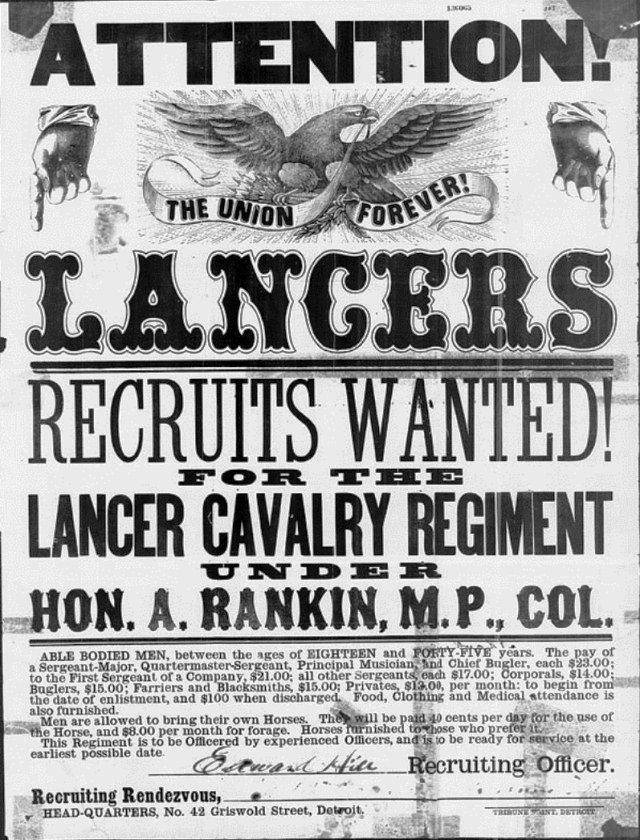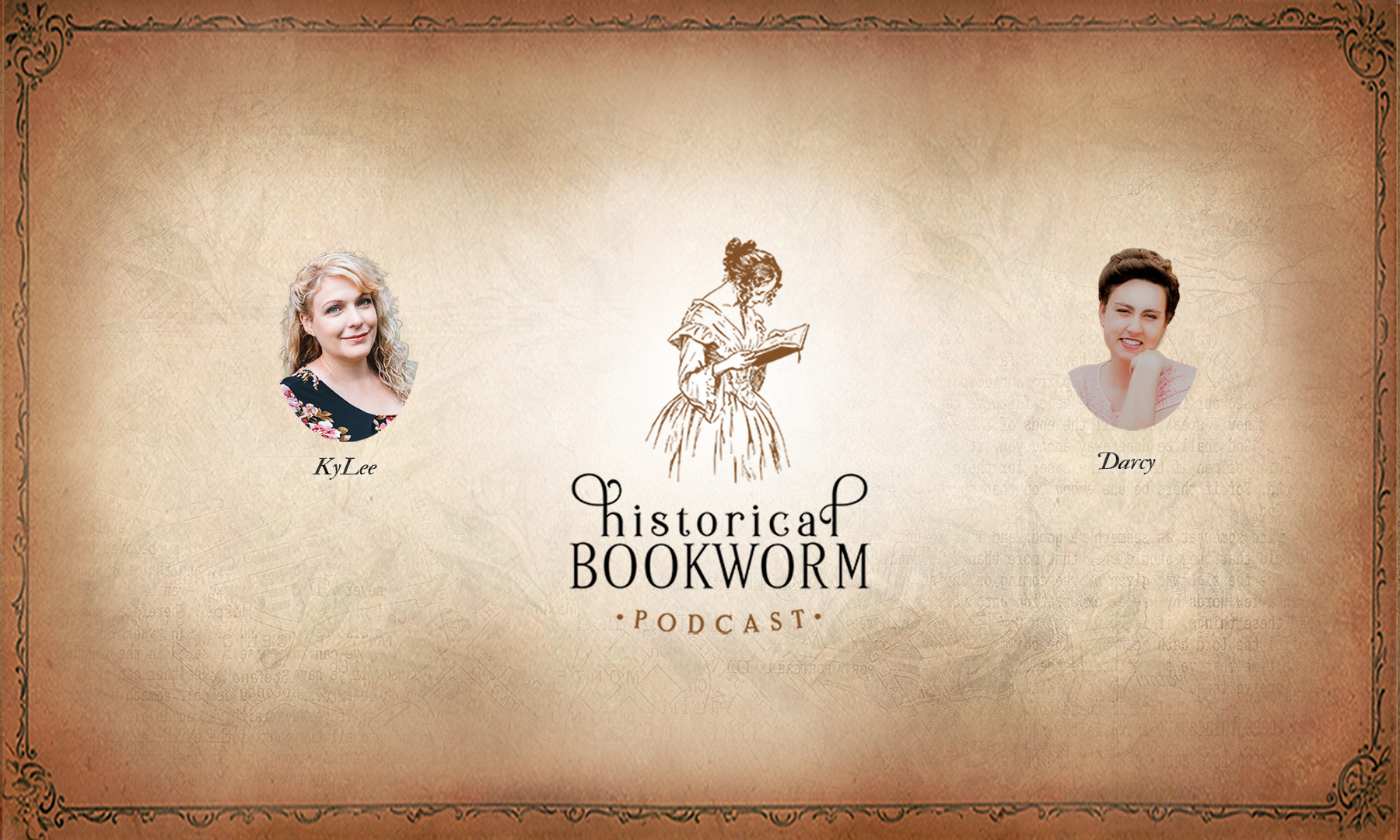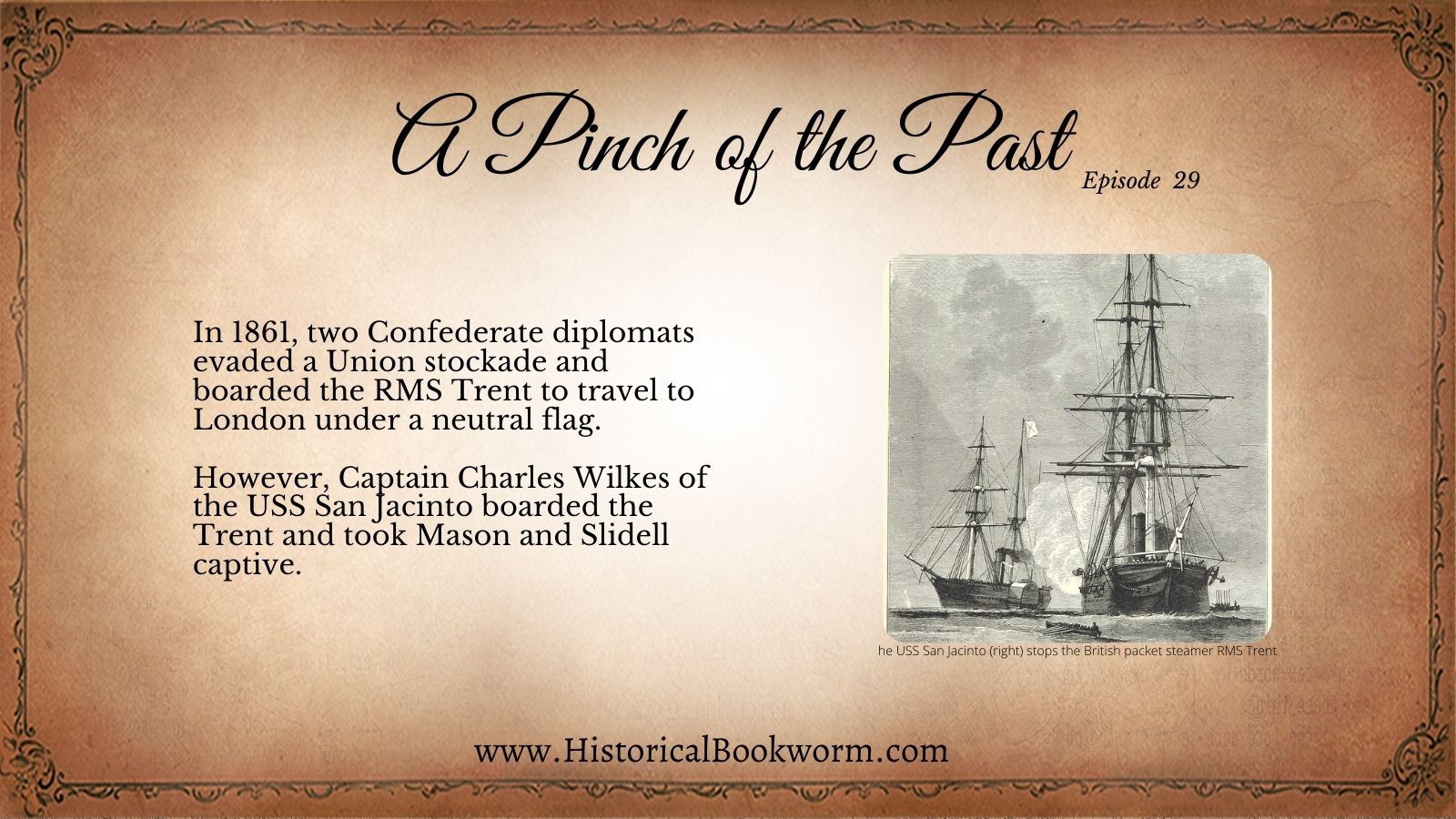If you ever watched National Treasure 2 you probably know that Great Britain was rumored to be sympathetic to the Confederate States of America. Canada did not exist as a federated nation at the time but was under British rule. Even though Canadians largely apposed slavery–with Canada serving as a terminus for the Underground Railroad–there was talk in London that the Union might move against the Crown and invade Canada.
The Trent Incident
- In 1861 two Confederate diplomats, James Mason and John Slidell evaded a Union stockade and boarded the RMS Trent to travel to London under a neutral flag. However, Captain Charles Wilkes of the USS San Jacinto boarded the Trent and took Mason and Slidell captive.
- Great Britain was not happy about having one of their ships boarded and their passengers taken captive. London demanded an apology as well as the freeing of the diplomats then sent 11,000 troops to Canada and put the Royal Navy on alert. France stated they would support Britain if war broke out.
- Lincoln was recorded to have advised his cabinet that they should not be hastily to make enemies of Great Britain, telling them they should worry about, “One war at a time.” The cabinet unanimously voted to release Mason and Siddell one month after their capture.
Canadians who served in the Civil War

- In July 1861, a surveyor by the name of Arthur Rankin gathered Canadians to fight for the Union Army.
- it is believed that a total of 40,000 Canadians fought during the Civil War, some serving the Confederacy but most the Union. Of these people, 29 had won the Congressional Medal of Honor by the end of the war.
Confederates in Canada
- There were also both Union and Confederate spies in Canada at the time.
- In March 1864, Confederate President Jefferson Davis sent lieutenant colonel Jacob Thompson to Canada to establish a second front. He organized missions to rescue prisoners of war from Union Prisons, sent raiders down into New York setting fires and wreaking havoc in the streets, and attacked Union ships on the Great Lakes.
- The Union reacted and established their own embassy in Canada where Union spies could watch for Confederate spies.
The End of the War
- Now to backtrack a little, at the beginning of the war men from both the North and the South immigrated to Canada to escape conscription into a war they, obviously did not want to fight. (this included aliens who intended to become citizens of the Union.)
- Following the war, wealthy southerners including military officers, politicians, and even confederate President Jefferson Davis (after a two year imprisonment) moved to Canada.
- Relations between the US and Canada remained strained after the war.
- Britain had supplied the Confederacy with ships and after the war was over President Grant demanded an inordinate sum in reparation. There was even talk of cleaning the slate by ceding Canada to the US.
- Many feared that the US would take their Manifest Destiny and turn north to try and conquer Canada. These threats helped to show Canada and British officials a need for Confederation. Canadians saw this finally happen in 1867, 2 years after the American Civil War ended.
While I enjoy reading Civil War fiction and researching the war, it can be a subject that is well talked-out in our day and age. This view of the Civil War in relation to Canada will, I hope, shed knew light on the subject and remind us that you never know what other countries are watching and including your story into their history.
This Pinch of the Past was originally shared in Episode 29: Guest Ann H. Gabhart & a Review of Long Way Home


One Reply to “Canada and the American Civil War”
Comments are closed.